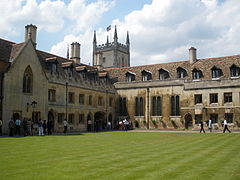By Eric King-
A Guardian investigation has exposed unacceptable levels of racism in British Universities . Academics and politicians have condemned UK universities for failing to tackle endemic racism against students.
It follows bitter complaints of racism made by students at Nottingham University and a racist Law Society Disbanded By Exeter University. Exeter University’s handling is currently the subject of an investigation with The Eye Of Media in the context of their handling of an appalling level of racism there in 2018 in which screenshots containing racists words were revealed in an Exeter University’s Students Whassap Group. However, Cambridge University, not Exeter, topped the list of schools with racist complaints made to the authorities
University staff from minority backgrounds said the findings showed there was “absolute resistance” to dealing with the problem. The findings come in response to a freedom of information (FoI) requests The Guardian sent to 131 universities showed that students and staff made at least 996 formal complaints of racism over the past five years.
Of these, 367 were upheld, resulting in at least 78 student suspensions or expulsions and 51 staff suspensions, dismissals and resignations. But even these official figures are believed to underestimate the scale of racism in higher education, with two separate investigations by the Guardian and the Equality and Human Rights Commission identifying hundreds more cases that were not formally investigated by universities.
The Guardian said several been dissuaded from making official complaints and either dropped their allegations or settled for an informal resolution. They said white university staff were often reluctant to address racism, with racial slurs treated as banter or an inevitable byproduct of freedom of speech, and institutional racism poorly recognised. The investigative publication revealed that students staging an occupation at Goldsmiths, University of London, enter the 17th week of their protest to demand it takes action against institutional racism.
Suki Ali, associate professor in sociology at the London School of Economics, said: “There has been absolute resistance to facing the scale of racism in British universities. If you’re in a climate where you think that people don’t understand the problem, don’t take it seriously, don’t have procedures and policies that seem to be effective, why and how would you make a complaint?”
Priyamvada Gopal, a reader at the faculty of English at Cambridge University, said complaints of racism were often met with “race illiteracy”. She said: “Complainants get exhausted and give up simply because there is no comprehension of what racism is. There is either outright denial, ‘gaslighting’ or minimising. Often when issues are raised, in my experience, they are either ignored or dismissed. There are few mechanisms and still fewer trained staff able to deal with race matters.”
COMPLAINTS
The Guardian found that between 2014 and 2015, there were were 461 complaints made against students, with the majority lodged by other students, and 535 complaints against staff. About half of the complaints made against staff were from students, including 144 against academics.
The universities that recorded the largest number of formal complaints were Cambridge (72); Cardiff (39), Oxford (39), Bedfordshire (36), Nottingham Trent (23), Birkbeck College, University of London (21), Salford (21), and Coventry, Liverpool John Moores and the London School of Economics, each with 20. But these figures may reflect that they had better complaints procedures.
The Guardian found more than a quarter of the universities surveyed lacked centralised records of racism complaints. Some did not specifically record racist incidents, lumping them together with other forms of discrimination, harassment and bullying.Some universities had only begun recording racist incidents in the last few years; others only recorded racist incidents against either staff or students, not both. News that the vast majority of universities also said they did not record informal complaints, while more than half did not record antisemitism and Islamophobia as racism.




